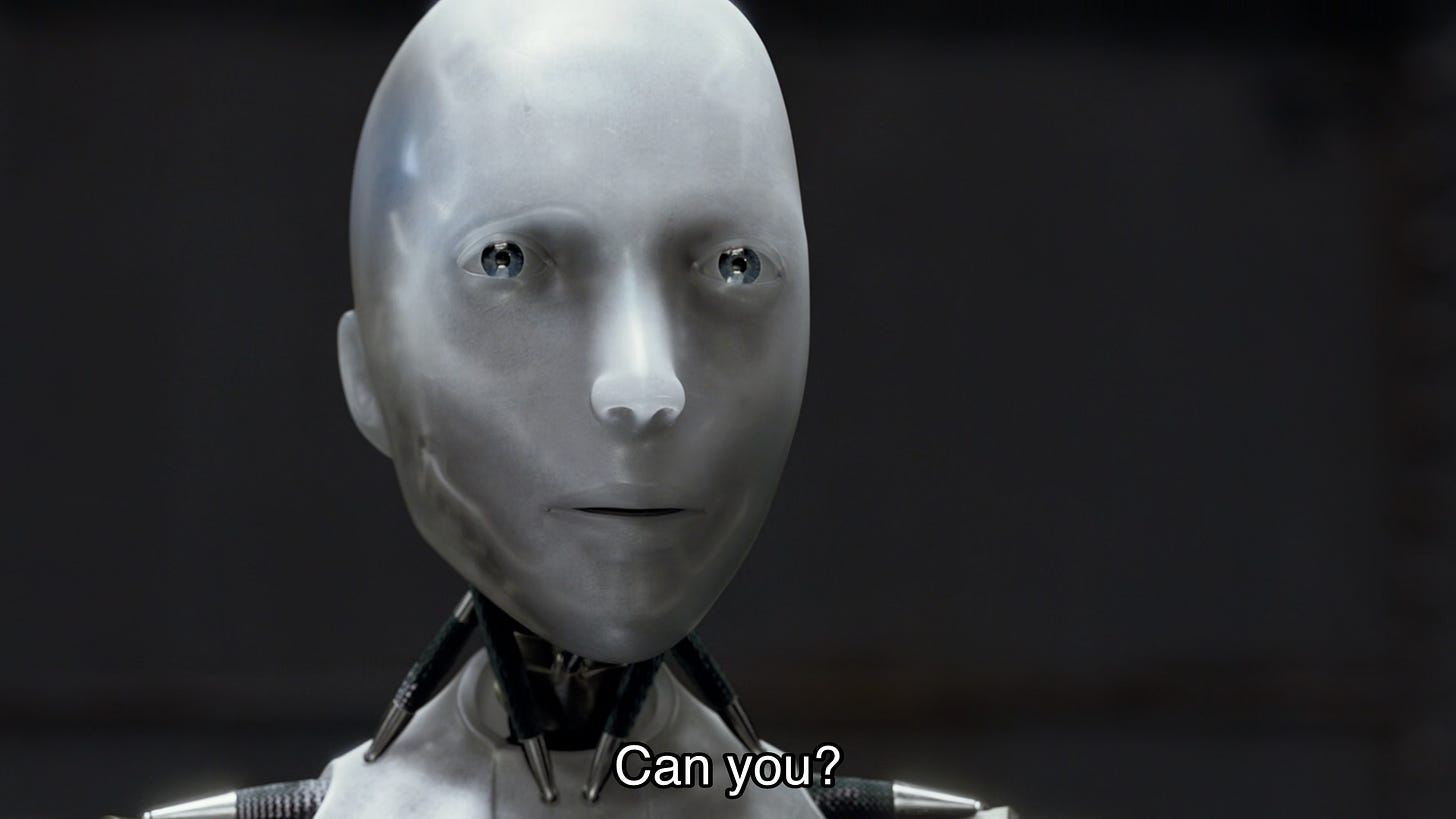Imperfect AI, Perhaps More Imperfect Humans
“Can you?”
Because of the recent advancements in AI, I’ve started rewatching some sci-fi movies. One of them was I, Robot, a fantastic film starring Will Smith. There’s a scene that struck me deeply: after arresting a robot, Will Smith’s character begins questioning the robot’s capabilities. He asks, “Can a robot write a symphony? Can a robot turn a canvas into a beautiful masterpiece?” The robot doesn’t directly answer but instead asks back:
“Can you?”
This movie came out in 2004, and now, 20 years later, despite the incredible progress of large language models, many people still criticize AI with the same questions Will Smith asked. I find it amusing that humans tend to compare AI’s capabilities with the best minds in human history rather than with the average person. Many people make mistakes daily, yet still believe they’re above average in intelligence (https://pmc.ncbi.nlm.nih.gov/articles/PMC6029792/). However, if AI makes mistakes or isn’t as good as Mozart, it’s dismissed as not being “real intelligence.”
But this skepticism toward AI isn’t new. There’s a well-known phenomenon called the “AI effect” (https://en.wikipedia.org/wiki/AI_effect): Every time there is a breakthrough in AI, such as mastering chess, people tend to dismiss it as mere computation. This attitude toward AI often leads us to underestimate its progress and impact: since AI is not “real intelligence” as long as it isn’t smarter than Einstein, why should we worry about it before it becomes truly “real”? However, if we measure AI against average human performance—rather than humanity’s greatest minds—and consider an average human intelligent, we must acknowledge that AI is intelligent—as it has already surpassed human performance on several benchmarks (https://aiindex.stanford.edu/wp-content/uploads/2024/04/HAI_AI-Index-Report-2024_Chapter2.pdf). Once we recognize this, we’ll realize how fundamentally AI will transform our world.
AI also doesn’t need to become a great artist to replace great artists. Only a few artists are truly great, and most people are satisfied with mediocre entertainment. If AI can flood us with “good-enough” short videos and superhero movies, most people will be content and won’t criticize AI for not being able to direct another Godfather. The real crisis isn’t that AI will surpass great human artists—human artists may still be far better than AI—but that they’ll lose their audience and market, making it impossible to create another masterpiece. You don’t have to destroy a book by burning it; it’s already destroyed when no one reads it anymore.
When we criticize AI, it’s worth reflecting on the question the robot asked in the movie. AI might not always understand an instruction, but do you? AI might not write plays as great as Shakespeare’s, but can you? AI isn’t perfect.
But are you?


